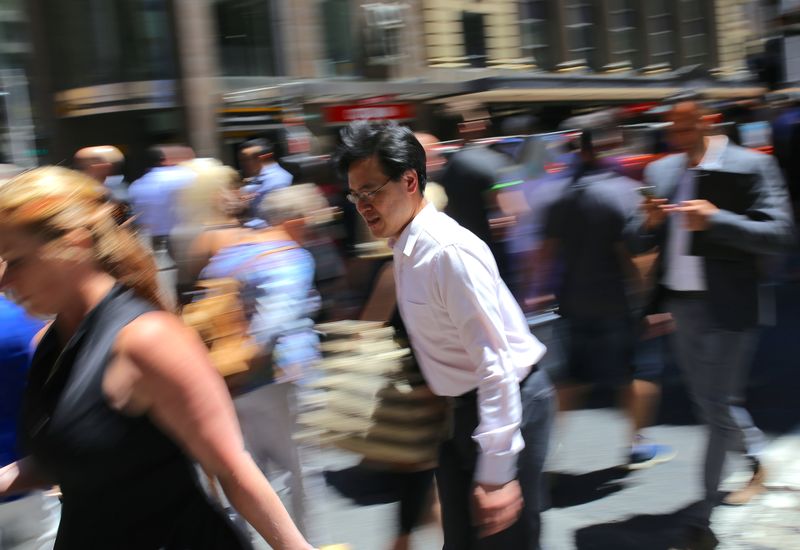Australia Q1 wage growth slows, soothes inflation worries
2024.05.15 00:20

By Wayne Cole
SYDNEY (Reuters) – Australian wage growth unexpectedly slowed from 15-year highs in the first quarter, data showed on Wednesday, likely marking the peak for this cycle and another sign the labour market was finally starting to loosen.
Crucially, the pullback should soothe long-running concerns about a potential price-wage spiral and lessen pressure for a further rate rise from the Reserve Bank of Australia (RBA).
“With job vacancies dwindling and the labour market loosening, we think that employers will grant smaller pay hikes over coming months,” said Marcel Thieliant, head of Asia-Pacific economics at Capital economics.
“Accordingly, today’s data will ensure that the RBA doesn’t hike interest rates any further but we still expect the bank to wait until Q1 next year before loosening policy.”
Figures from the Australian Bureau of Statistics on Wednesday showed the wage price index rose 0.8% in the March quarter, missing market forecasts for a 0.9% rise. It was the smallest increase since late 2022.
Annual pay growth ticked down to 4.1%, from 4.2%, again under expectations. Notably, growth in the private sector also dipped to 4.1%, its first fall since the third quarter of 2020.
Wages in the public sector rose a modest 0.5% in the quarter, pulling annual growth down to 3.8% from 4.3%.
The overall increase in annual wages was still just enough to take it above inflation of 3.6%, a welcome return to real pay growth after years of negative outcomes.
Incomes will get an added boost from a major round of tax cuts slated to start in July, while the Labor government announced new rebates on energy and rent costs in its annual budget on Tuesday.
3rd party Ad. Not an offer or recommendation by Investing.com. See disclosure here or
remove ads
.
The rebates will have the mechanical effect of pulling headline inflation down temporarily, but could also boost spending power and thus demand.
“The positive fiscal impulse to growth is likely to be seen as unhelpful at cooling the economy at the margin,” said Andrew Boak, an economist at Goldman Sachs.
“However, we do not expect the central bank to be too worried about the new “cost of living” initiatives fuelling a surge in demand against the current backdrop of extremely weak trends in consumer confidence and per capita consumption.”
He still thinks the RBA will start cutting rates in November, though notes the risk is for easing to be delayed until next year given service inflation is proving very sticky.
Markets imply little chance of a rate cut until April 2025, with around an 8% risk of one more hike later this year.








